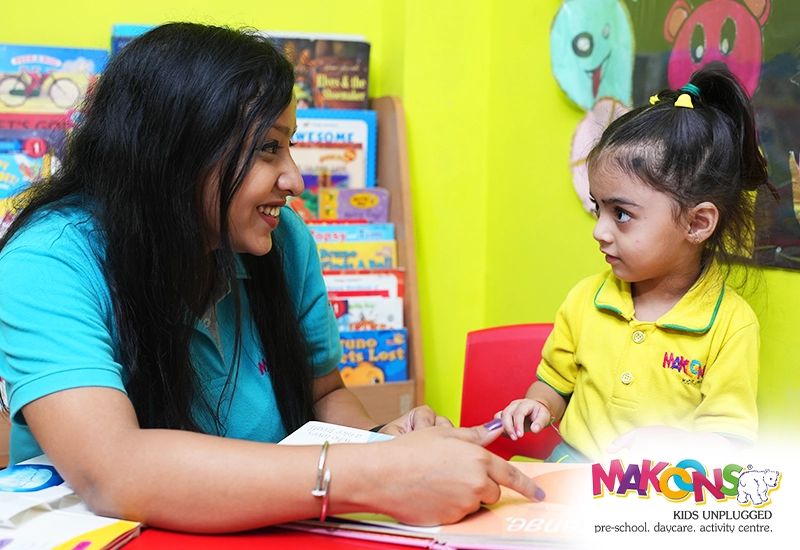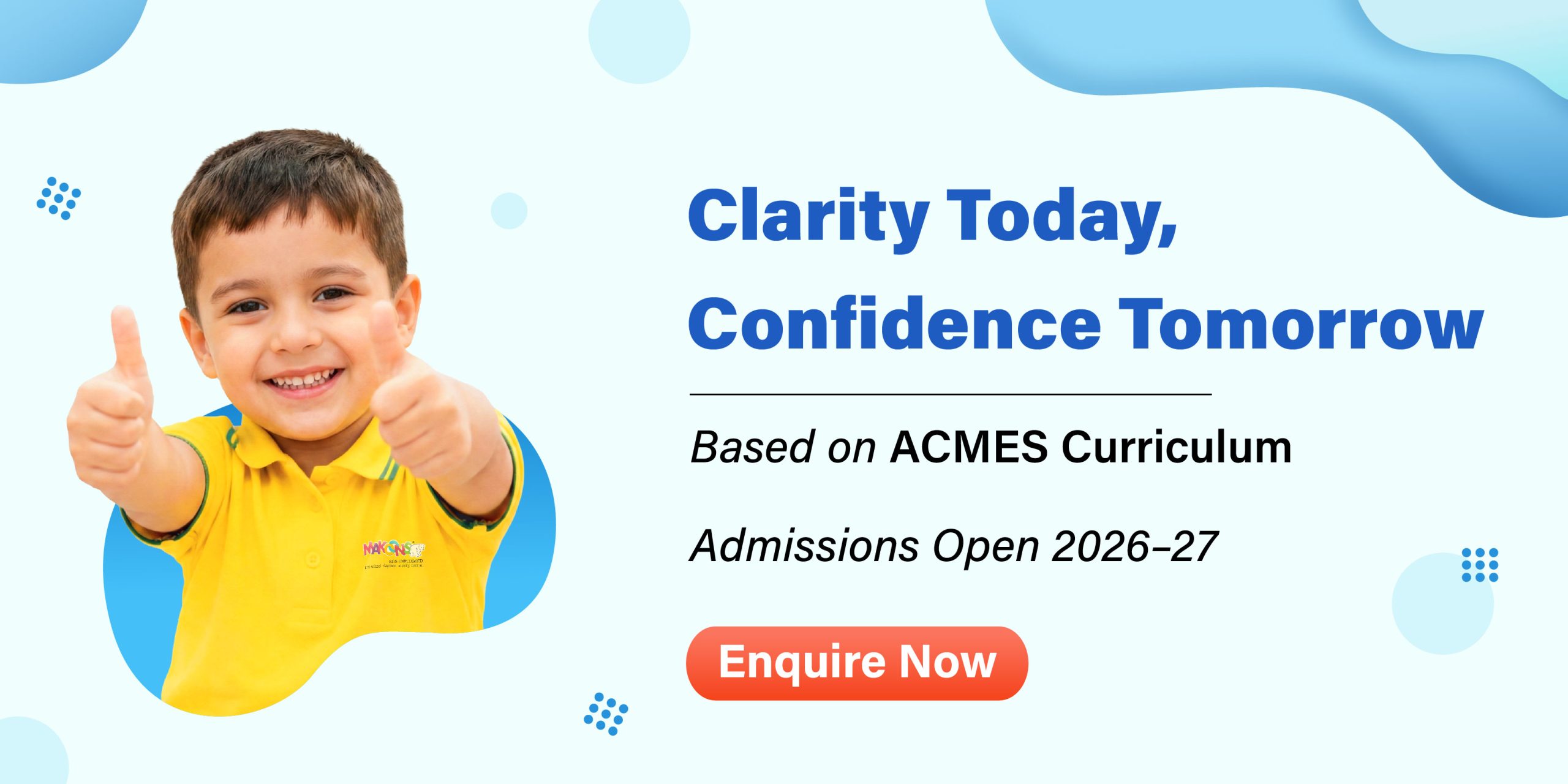A child’s early years are a time of rapid brain development during which experiences influence social, emotional, and cognitive development. Education is one of the most important factors at this stage. More precisely, early childhood education and brain development are closely related, with high-quality educational programs establishing the groundwork for wellbeing and lifelong learning. We’ll look at how early education programs affect brain development, how they operate, and why they are crucial for every child’s future in this blog.
Why the Early Years Matter Most
A child’s brain develops the most between birth and age five. More than a million new neural connections are made every second during this stage. The early years are the most crucial time for influencing a child’s thoughts, feelings, and behavior because of their exceptional rate of development.
Early brain development is significantly improved by structured learning environments and responsive, caring interactions, according to a wealth of research. The brain is wired for language, memory, attention, and emotional control as a result of these experiences.
Early Childhood Education and Brain Development: The Science
We must examine how the brain develops in order to comprehend early childhood education and brain development. Because of its high degree of plasticity, the early brain can change and rearrange itself in response to experiences and learning. Through structured play, problem-solving, storytelling, music, and peer interaction, early education programs capitalize on this neuroplasticity.
These exercises activate important brain areas that are in charge of:
- Development of Language
- Mental abilities
- Social-emotional education
- Retention and focus
- Coordination of movement
All of these areas are supported by high-quality programs, which guarantee that kids develop not only their intelligence but also their emotional and social skills.
Impact of Early Education on Brain Development
Brain development is significantly impacted by early education. The following significant results are displayed by kids who take part in top-notch early learning programs:
1.Improved Mental Capabilities Memory, attention span, and problem-solving abilities are all enhanced by structured learning. Youngsters perform better in language, math, and reading and are more ready for preschool.
2.Intelligence in Emotions Early education helps the child to comprehend their emotions and feelings of others. They learn to cooperate, to empathize and to resolve conflicts with their peers, Wolfe says, which are all skills they need to succeed in later life.
3.Enhanced Linguistic Ability
Vocabulary and comprehension are elevated by storytelling, music, and conversation. Kids who go to daycare have more words and speak more clearly.
4. Better Social Skills
Daily peer interaction promotes sharing, cooperation, and social norms. These interactions increase one’s sense of self-worth and optimistic attitude toward learning.
5. Extended Academic Performance
Children who take part in early education programs are more likely to complete high school, attend college, and perform better academically over the course of their school years, according to studies.
Child Brain Development Programs: What They Offer
Many programs for developing children’s brains are made especially to offer a caring and engaging atmosphere that supports children’s preferred learning style, which is play and exploration. Among these programs are:
•Methods of Reggio Emilia and Montessori
emphasizing sensory experiences and self-directed learning.
•STEM-Oriented Early Education
incorporating fundamental ideas in math, science, technology, and engineering from a young age.
•Programs for Immersion in Languages
introducing a variety of languages to improve linguistic abilities and brain flexibility.
•Classes in Music and Movement
improving motor skills and auditory processing.
•Social-Emotional Learning Programs
promoting resilience, kindness, and empathy via role-playing and supervised interactions.
Every one of these child brain development programs makes a distinct contribution to the development of cognitive and emotional maturity.
Brain Development in Early Years: Role of Parents and Educators
Early brain development is greatly influenced by the home environment and the caliber of interactions with caregivers, even though formal programs are crucial. A child’s developmental path is greatly influenced by their parents and teachers. Important procedures consist of:
- Actively: listening, posing queries, and having meaningful conversations are all components of responsive communication.
- Reading Together: Reading on a regular basis fosters cognitive and language development.
- Promoting Exploration: Creating secure environments for learning motivated by curiosity.
- Positive reinforcement : Positive reinforcement is the process of enhancing self-esteem and fostering development through praise and encouragement.
- Creating consistent routines : keeps kids safe and focused.
The results are greatly enhanced when early education programs are combined with nurturing home environments.
Difficulties and Inequalities
Although you puppet show control positive effects of early education abound, high-early-education-access still remains a dream in some part of the world. A significant number of children do not receive early intervention as a result of lack of recognition, economic disparities, and geographic impediments. This leaves gaps in brain development and lifelong learning ability
To guarantee that all children, regardless of background, benefit from early learning experiences, these gaps must be addressed through public policy, affordable access, and parental education.
India’s Progress in Early Childhood Education
Early learning through pre-primary schooling is emphasized in the National Education Policy (NEP) 2020 and the Integrated Child Development Services (ICDS), two programs that have expanded in India as a result of growing awareness of early childhood education and brain development.
Private sector advancements in child brain development programs are also growing, with contemporary, scientifically supported curricula catered to Indian kids. Both in urban and rural areas, there is an increasing need for high-quality, easily accessible early childhood education.
Conclusion
Unquestionably, early education has a significant impact on brain development.. Smarter, healthier, and more capable people are the result of early brain development investments made through focused educational initiatives.
Promoting child brain development programs is an investment in our future, whether done through government programs, private organizations, or parental involvement. As our understanding of the complex relationship between brain development and early childhood education grows, it is our collective duty as a society to guarantee that all children have access to these life-changing experiences.


